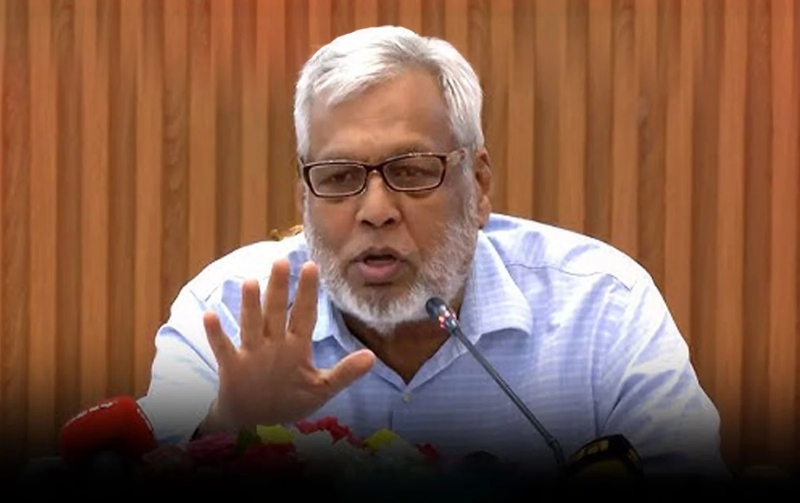- Bangladesh Lost $24B in 2024 as Extreme Heat Hits Economy |
- Remittance Surpasses $10b in Four Months of FY 2025-26 |
- Dhaka residents struggling with ‘unhealthy’ air quality |
- Over 100 Killed in Brazil’s Deadliest Rio Police Raid |
- Alphabet Tops $100 Billion Quarter as AI Drives Surge |
Solar power projects face delays amid challenges: Adviser Fouzul Kabir

Energy and Mineral Resources Adviser Fouzul Kabir Khan.
Dhaka, Oct 21 - Bangladesh’s solar power projects have failed to gain momentum despite several government initiatives, mainly due to multiple challenges and non-cooperation from certain power distribution agencies, said Power, Energy and Mineral Resources Adviser Fouzul Kabir Khan on Tuesday.
Speaking at the signing of a memorandum of understanding (MoU) under the National Rooftop Solar Programme at Bidyut Bhaban in Dhaka, the adviser said several distribution companies’ resistance has repeatedly hindered the progress of solar power projects.
“The biggest obstacle to implementing solar power projects has been the non-cooperation of some distribution companies. Their resistance has delayed progress time and again,” he said.
Fouzul Kabir highlighted the worsening energy scenario, saying the country’s natural gas reserves are declining rapidly, while importing LNG and expanding exploration have become increasingly difficult.
“Every year, we lose about 200 million cubic feet of gas. Moreover, there are countless illegal gas connections across the country. Even when one is cut off, new ones emerge elsewhere,” he said.
The adviser noted that electricity generation using imported gas costs Tk 18–20 per unit, while in the industrial sector, the cost rises to Tk 30–40 per unit.
“Despite these pressures, the government has not increased gas or electricity prices in the past year,” he said, adding that renewable energy remains the only sustainable option for the future. “If we can generate 3,000 megawatts of power from rooftop solar systems, it will ease pressure on other energy sources.”
The adviser acknowledged that Bangladesh is lagging behind its neighbours in renewable energy adoption. “Around 75 percent of Sri Lanka’s electricity comes from solar, while India produces 30–40 percent from it. Bangladesh, however, generates only 2–3 percent.”
As part of the interim government’s roadmap for sustainable energy, the Power Division on Tuesday signed MoUs with five ministries and divisions to implement the National Rooftop Solar Programme.
The participating entities include the Ministry of Primary and Mass Education, Health Services Division, Secondary and Higher Education Division, Technical and Madrasa Education Division and the Women and Family Welfare Division.
According to the Power Division, the initiative was approved on June 29 at a meeting of the Advisory Council.
Under the programme, the government aims to produce 2,000–3,000 megawatts of electricity nationwide through rooftop solar systems.
The implementation will follow two approaches. Under the first, all government institutions will install rooftop solar systems on their own buildings (excluding rented ones) using government funds.
State-owned agencies with their own revenues will finance installations independently while keeping their supervising ministry and the Power Division informed.
The second approach involves combined tenders to install rooftop solar systems on government-owned buildings under the participating ministries and divisions, along with other interested public institutions.
Each organisation will generate electricity according to its rooftop capacity, with power generation and consumption adjusted with the respective distribution company to reduce electricity expenses.
The Power Division said six power distribution companies have already invited tenders to install rooftop solar systems in 46,854 institutions under the five ministries, targeting 1,454.61 megawatts of generation. Implementation is expected to begin before December.
Bangladesh Bank will offer low-interest financing for rooftop solar projects, while several financial institutions will provide funding through different models to support the programme, according to the ministry. - UNB

